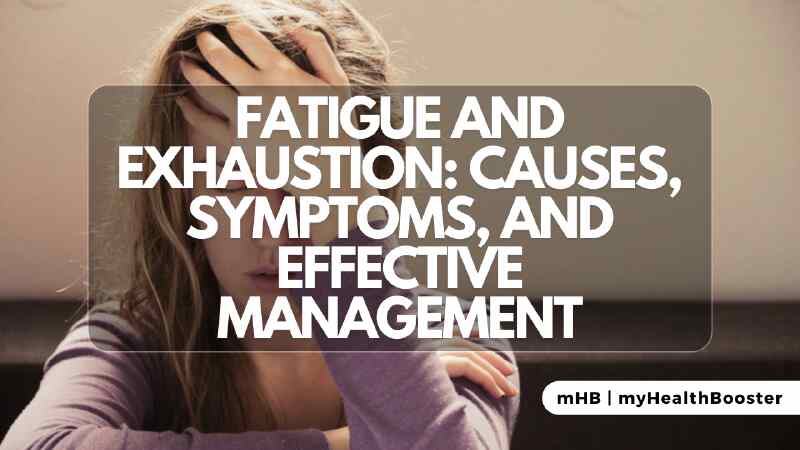Fatigue, often misunderstood as mere tiredness, is a complex symptom affecting both physical and mental energy levels. Distinguishing it from drowsiness is crucial for accurate diagnosis and effective management. This article explains the various aspects of fatigue, its causes, symptoms, diagnosis, and treatment.
Fatigue and Exhaustion
Fatigue is more than just feeling tired; it encompasses a lack of energy and motivation, affecting both the body and mind. While often associated with aging, it’s essential to recognize that fatigue is a symptom, not a standalone ailment. Identifying the root cause, whether physical, psychological, or a blend of both, is crucial.
Symptoms and Variations
Fatigue symptoms manifest in different ways, including a lack of motivation, quick exhaustion during activity, and mental fatigue impairing concentration and memory. Chronic fatigue, distinct from chronic fatigue syndrome, presents a prolonged state of exhaustion. Chronic fatigue syndrome is defined by specific criteria, emphasizing symptoms like post-exertional malaise, impaired memory, and unrefreshing sleep.
Causes of Fatigue and Exhaustion
Fatigue can result from various factors, ranging from metabolic and infectious causes to cardiac, pulmonary, and psychological issues. Medications, psychiatric conditions, sleep problems, vitamin deficiencies, and chronic illnesses like fibromyalgia contribute to fatigue. Recognizing the underlying cause is critical for effective treatment.
Diagnosing Fatigue and Exhaustion
An accurate diagnosis hinges on a comprehensive medical history. Healthcare professionals inquire about fatigue patterns, associated symptoms, and lifestyle changes. Questions explore the quality and quantity of fatigue, daily variations, and impact on daily life. Physical examinations and targeted blood tests aid in pinpointing potential causes.
Treatment Approaches
Treatment depends on addressing the specific cause of fatigue. Identifying and managing underlying illnesses, nutritional deficiencies, or adjusting medications can alleviate symptoms. The recovery timeline varies; for instance, anemic individuals might experience immediate relief post-treatment, while recovering from infectious mononucleosis may take weeks.
Prevention and Early Recognition
Preventing fatigue isn’t straightforward due to its diverse causes. Early recognition, however, is paramount. Vigilance to gradual declines in performance, self-awareness, and seeking medical advice promptly can lead to earlier diagnosis and intervention.
Conclusion
Fatigue is a multifaceted symptom requiring careful consideration. This article highlights the importance of accurate diagnosis, explores potential causes, and emphasizes the role of early recognition in effective management. If you or someone you know is grappling with persistent fatigue, seeking professional medical advice is crucial for comprehensive care.
